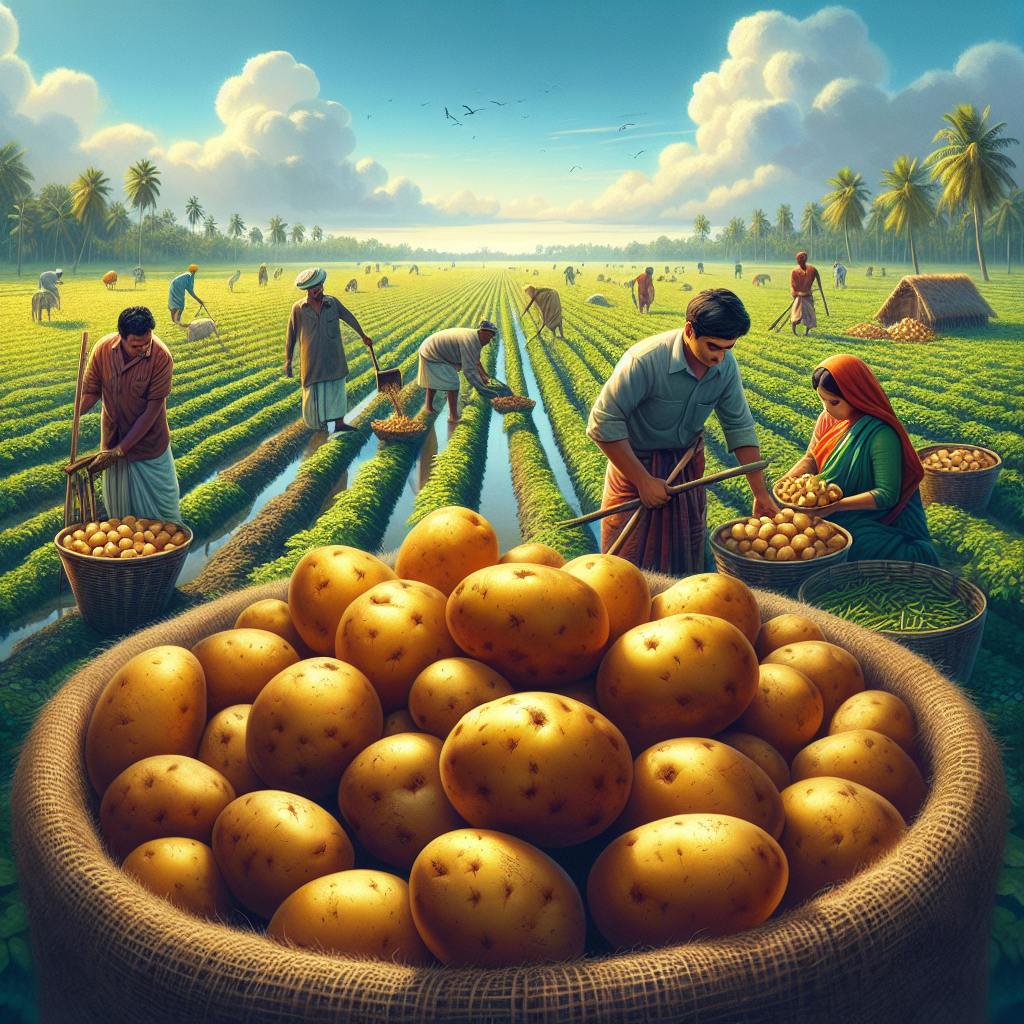Potato Predicament: A Climate Challenge Looms Over China's Staple Crop
In Beijing, molecular biologist Li Jieping leads a study on the impact of rising temperatures on potatoes, highlighting a threat to future food security. Potatoes, crucial for global food supplies, suffer reduced yields under simulated future conditions, prompting urgent research for heat-tolerant varieties amid climate change.

In northwest Beijing, a research team led by molecular biologist Li Jieping has revealed a stark warning for future food security through their cultivation of significantly undersized potatoes.
These potatoes, grown under simulated higher temperatures akin to those predicted for the end of the century, hint at the alarming impact of climate change on potato yields in China. As the world's largest producer of potatoes, and with these tubers being critical for global food security due to their high yield, China faces a crucial challenge. Rising temperatures, driven by fossil fuel emissions, pose a significant threat, causing reduced yields and increased vulnerability to adverse weather conditions.
Li's three-year research endeavor, published in Climate Smart Agriculture, shows dire results: higher temperatures not only accelerated tuber growth but significantly halved yields. As climate experts forecast up to 3.1 C of warming by 2100, Chinese farmers are already grappling with extreme weather events, urging a shift towards heat-tolerant potato varieties.
(With inputs from agencies.)
ALSO READ
Tribute to Charan Singh: Champion of Indian Agriculture
Uzbekistan Hosts IAEA Mission to Enhance Safety of Long-Term Research Reactor Operations
Farmers Rally Against National Agriculture Market Policy in Shimla
Gokhale Institute Platinum Jubilee Conference: Shivraj Singh Highlights Agriculture Sector's Role in India's GDP
Honoring a Legacy: Charan Singh's Impact on Indian Agriculture










